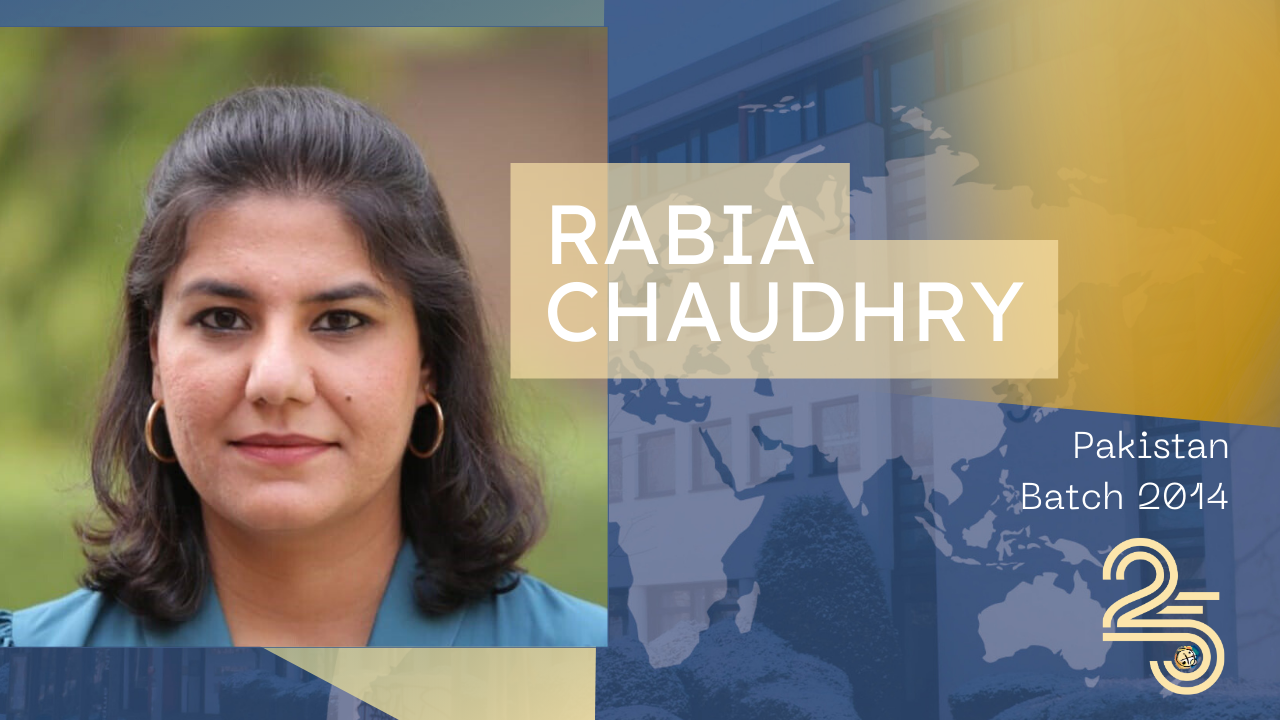“Effective and implementable research needs to be interdisciplinary in nature”.
Rabia worked as a lawyer before she came to ZEF for pursuing her PhD. After finishing her PhD (2019) on the societal role of Pakistan’s military Rabia Chaudhry returned to Pakistan to work at a University in Lahore.
Fact sheet
Rabia Chaudhry comes from Pakistan
PhD at ZEF: 2014 – 2019
PhD topic: An army with a country: How the Pakistan military imposes hegemony via the infrastructure and welfare sectors
PhD funding agency: German Academic Exchange Service (DAAD)
Supervisors: Professor Solvay Gerke and PD Dr. Eva Youkhana
Current position: Assistant Professor, Centre for Public Policy and Governance, Forman Christian College (University) Lahore, Pakistan
Q&A with Rabia
What was your motivation for conducting your doctoral research at ZEF?
Even though many universities across the world are offering interdisciplinary degrees now, ZEF was one of the first few institutions to take the lead in this regard. As a lawyer with a master’s degree in public policy, I was very aware of the fact that effective and implementable research needs to be interdisciplinary in nature. ZEF was the only institution which was offering an interdisciplinary program at the time.
How has the topic of your doctoral research evolved in your opinion?
While Pakistan’s army has been scrutinized from every political angle over the years, ZEF encouraged me to look beyond the tried and tested methods. This I feel is an expertise typical to ZEF which no other place can offer. I therefore critically examined the military as a hegemon and explored it developmental activities which had not been done at that time yet. Because of the innovative nature of the research, Routledge published it as a book (see: Rabia Chaudhry (2024) The Changing Dynamics of Civil Military Relations in Pakistan).
How has your doctoral training at ZEF impacted your career and from which aspects did you benefit most?
On a professional note, I definitely became more grounded as a researcher. Not only did I develop a strong theoretical base, but I also improved my skills to present research in an effective manner, which is something that ZEF invests a lot of time in imparting to its graduates. On a personal note (and I take this as personal development complementary to professional), the ZEF faculty taught me how to be a better teacher through example. I am currently based at a university, and there are many times and plenty of situations where I find myself thinking how would this particular situation be handled if it were at ZEF. The nurturing environment with exacting academic standards was a perfect blend that I certainly needed and truly benefited from.
What are you most content with in terms of what you have achieved career wise so far?
My research skills have certainly developed leaps and bounds. I have developed skills of critical thinking and analysis. Two things I am particularly proud of are a) how I developed as a person at ZEF and b) my research (which was conducted at ZEF) has been published by Routledge.
What motivates you to keep going in your field?
For me, research and teaching are the only way I know how to give back to society. I am currently based at the Centre for Public Policy and Governance (CPPG), Forman Christian College University, Lahore in Pakistan, where I teach public policy and governance to post-graduate Master and PhD students. For the past three years, I have also been advising the officers of the Pakistan Administrative Services on Public Policy Formulation and Policy Design and regularly conduct trainings of government officers on multiple policy issues.
What is your best memory of ZEF?
The four years at ZEF not only helped me grow professionally but personally too. Most importantly, I made life-long friends.
ZEF and its Doctoral Program turn 25 this year. What are your wishes and suggestions for their future?
I sincerely wish ZEF would develop a post-doctoral program as well. This would create an opportunity to address the gaps and deficiencies we identify in our careers further down the road.
Curious about Rabia’s doctoral research? She wraps it up in this 5-minute video on our youtube channel.



Leave a Reply